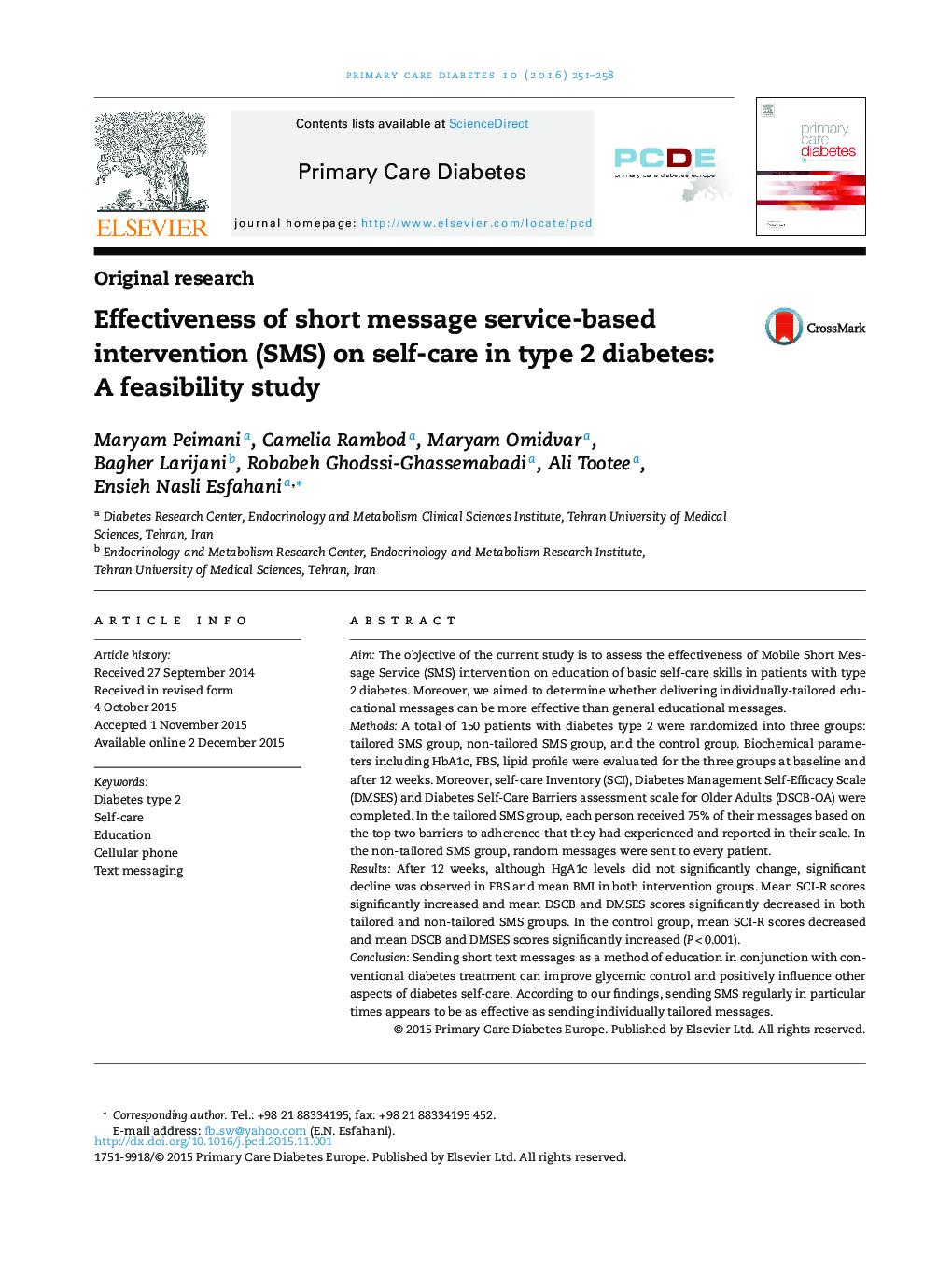| کد مقاله | کد نشریه | سال انتشار | مقاله انگلیسی | نسخه تمام متن |
|---|---|---|---|---|
| 2680719 | 1142379 | 2016 | 8 صفحه PDF | دانلود رایگان |
• Patient education plays a significant role in diabetes management.
• Intervention reduced FBS, triglyceride and BMI significantly in both SMS groups.
• Intervention increased SCI-R scores significantly in both SMS groups.
• DSCB and DMSES scores decreased significantly in both SMS groups after intervention.
AimThe objective of the current study is to assess the effectiveness of Mobile Short Message Service (SMS) intervention on education of basic self-care skills in patients with type 2 diabetes. Moreover, we aimed to determine whether delivering individually-tailored educational messages can be more effective than general educational messages.MethodsA total of 150 patients with diabetes type 2 were randomized into three groups: tailored SMS group, non-tailored SMS group, and the control group. Biochemical parameters including HbA1c, FBS, lipid profile were evaluated for the three groups at baseline and after 12 weeks. Moreover, self-care Inventory (SCI), Diabetes Management Self-Efficacy Scale (DMSES) and Diabetes Self-Care Barriers assessment scale for Older Adults (DSCB-OA) were completed. In the tailored SMS group, each person received 75% of their messages based on the top two barriers to adherence that they had experienced and reported in their scale. In the non-tailored SMS group, random messages were sent to every patient.ResultsAfter 12 weeks, although HgA1c levels did not significantly change, significant decline was observed in FBS and mean BMI in both intervention groups. Mean SCI-R scores significantly increased and mean DSCB and DMSES scores significantly decreased in both tailored and non-tailored SMS groups. In the control group, mean SCI-R scores decreased and mean DSCB and DMSES scores significantly increased (P < 0.001).ConclusionSending short text messages as a method of education in conjunction with conventional diabetes treatment can improve glycemic control and positively influence other aspects of diabetes self-care. According to our findings, sending SMS regularly in particular times appears to be as effective as sending individually tailored messages.
Journal: Primary Care Diabetes - Volume 10, Issue 4, August 2016, Pages 251–258
